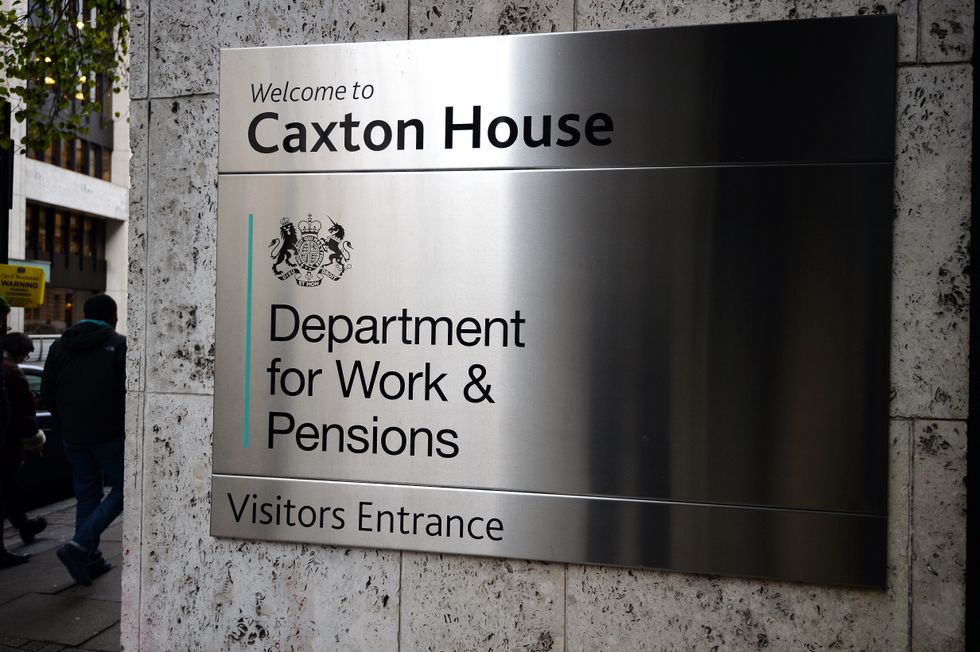There are new calls to increase the minimum auto enrolment pension contribution level
GETTY
There are new calls to increase the minimum auto enrolment pension contribution level as people struggle to achieve their preferred retirement lifestyle
Don't Miss
Most Read
Trending on GB News
Pension savers are warned they could be left "relying on state support in later life" due to shortfalls in other retirement income.
Around 14 million people are not on track for their expected retirement income, with many facing a savings gap of more than £100,000, new research shows.
Some seven in ten (71 per cent) UK adults agree that the Government should set out a plan to increase the minimum auto-enrolment pension contribution rate if it’s too low for most people to achieve an income they could live off in retirement, new research from Phoenix Group found.
When asked what an ‘adequate’ income in retirement is, the top response from UK adults was an income level where ‘basic needs are covered with some money left over for non-essentials’.
Since the introduction of automatic enrolment on October 1, 2012, more than 10 million people are quietly putting money away for the future for the first time, or saving more.
Under auto-enrolment, employees join a defined contribution pension scheme with a statutory minimum contribution level (from employer and employee combined) of eight per cent per annum.

The DWP are giving over £11,500 to pensioners with the full new state pension
GETTY
However saving at this level is unlikely to provide enough funds for most people to meet their retirement expectations, the report stated.
Catherine Foot, Director of Phoenix Insights, Phoenix Group’s longevity think tank said: "Auto-enrolment has been successful in kick-starting pension saving for millions of people, but the current minimum contribution rate is too low for most savers to achieve an adequate retirement income and may be giving some a false sense of security.
"We need a government plan to increase contributions and help address the pension saving gap, as part of a wider review of the pension system to ensure it is helping people to save enough and be more financially secure over the long-term.
“Delays and inaction on this could leave generations of future retirees unable to enjoy the lifestyle they hoped for when they retire or struggling financially, with millions more relying on state support later in life.”
Around 14 million people, or half of defined contribution pension savers, are not on track for their expected retirement income. Those who have not saved enough will not just be slightly off track, over two thirds (68 per cent) of this group face a savings gap of more than £100,000, Phoenix Group’s longevity think tank Phoenix Insights suggested.
Over a quarter (27 per cent) of non-retirees think the minimum auto-enrolment contribution rate is too low. Of this group, half (51 per cent) think the minimum contribution should increase to at least 12 per cent and a fifth (20 per cent) think it should increase to at least 15 per cent.
Not all savers are the same, they will have their own expectations and requirements when it comes to visualising their retirement.
The State Pension triple lock acts as a crucial safeguard against rising retirement living costs. With a significant 8.5 per cent increase to just over £11,500 for a full new state pension annually from April 2024, it remains a substantial foundation of retirement income.
Similarly, someone on the full rate of the Basic State Pension will get £169.50 each week, £8,814 over the 2024/25 financial year.
However, Britons are warned they may be left to rely on this support as the funds from auto enrolment won't adequately provide the lifestyle they need.
In the latest update, the cost of a Minimum Retirement Living Standard increased from £12,800 to £14,400 for a single person and from £19,900 to £22,400 for a couple. The Minimum Retirement Living Standard covers all one's needs, with some left over for fun.
With the Minimum Retirement Living Standard more than the full new state pension, Britons are urged to take control of their retirement planning, and ensure they are earning enough in their other pension pots.
Some employers will pay more into one's workplace pension if they agree to increase their contributions too.
This is known as ‘contribution matching’. It might help people build their retirement savings faster – but each person should make sure they can afford to pay more in.
Gail Izat, managing director for workplace pensions at Standard Life, part of Phoenix Group said: “More needs to be done to help people secure a decent standard of living in retirement, and raising minimum contributions is the single most powerful mechanism available.
"While it’s important that we move when the time’s right for both savers and employers, prolonged inaction risks continued under-saving and the UK sleepwalking into a retirement savings crisis.
“It’s clear that people support action on raising minimum contributions if the current rate isn’t adequate, and we urge the next government to put a review in place.”







